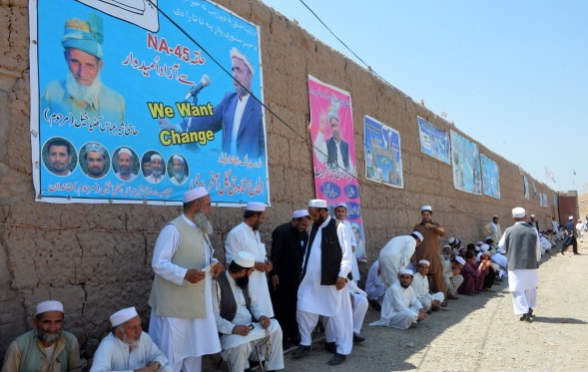
TO: Honorable Prime Minister of Pakistan, Muhammad Nawaz Sharif
FROM: Kishwar Munir, University of Punjab
SUBJECT: FATA Reforms
Since 1901, the Federally Administrated Tribal Areas (FATA) region has been under a draconian British-made legal system called the Frontier Crimes Regulation (FCR). Under this law, FATA residents are not allowed the rights to appeal, legal representation (wakeel), and evidence (daleel). After independence, the constitution of Pakistan kept the region’s isolation intact through article 247 (b), which states that the parliament and courts do not have jurisdiction over FATA. The old legal and administrative structures are authoritarian in nature and essence and have failed to deliver according to the wishes of the people. Though some changes have been introduced by the government, substantial reforms are required to bring FATA into the mainstream. Recently, a committee for political and development reforms of FATA has been formed. However, reforms should be devised in a way that can help to transform FATA from a socio-economically isolated region to a nationally-integrated, stable, and affluent state, where the population’s fundamental rights are protected.
Determine the Constitutional Status of FATA
The committee should consult all stakeholders—FATA Political Alliance (FPA), tribal elders, parliamentarians, and civil society—on whether FATA should be merged into Khyber Pakhtunkhwa, made into a separate province, or changed from FATA to PATA. A constitutional arrangement is necessary in order to avoid future controversy. Any forced decision that does not fulfill the demands of people or challenges their culture and values might face local backlash. Consequently, a referendum should be used as a tool to clarify the demands of the tribal belt population. FCR should be amended substantially or replaced to ensure the fundamental rights of the tribes.
Grant the Right of Judicial Review
The Supreme Court and High Court should have jurisdiction over FATA, which is currently denied under article 247. The people of FATA have been alienated for many years from the whole country and it is time to bring the region into the mainstream. The Political Agent(PA), who has chief executive authority over the region, also has legal powers and thus the PA’s power and authority urgently need to be revised. A visionary strategy should be adopted in order to counter opposition from the TTP, religious parties, and the tribal chiefs with vested interest. They may resist the mainstreaming of FATA in order to protect status quo and continue to demand imposition of Sharia. A traditional institution like the jirga should be reframed to play a positive role in conflict resolution among the locals. The jirga should have a tier system, starting with a village and going up to the highest-level jirga which represents FATA. In the first tier, people should select the village jirga through elections, and then jirga at the agency level can be elected by the village jirga while the jirga at the apex could be chosen by the agency jirga.
Stand-Up Institutional and Good Governance Standards
The local government can be the mechanism that provides social and economic upward mobility to the region’s inhabitants. The government of Pakistan should take considerable security measures so that the people outside the tribal areas can get access to FATA. A fully-equipped local security force should be created to ensure law and order.
Establish a Strong Framework for Women’s Rights
Women are the most neglected segment of the tribal areas, both by the government and non-governmental organizations. The first time a woman ever contested national assembly elections from FATA was in 2013. Women’s fundamental rights are not protected by the constitution and the region’s political isolation from other parts of the country exacerbates women’s condition. The government should formulate constructive reforms for betterment of the women of FATA but keep in mind the tribal culture, to avoid conflict. There should be a fixed quota for women from FATA in the national assembly, to provide a platform for them to raise their voice. Recently, the government expressed its commitment to remove legal loopholes to eliminate honor killing. This bill should also include the women of FATA. A center of technical education specifically for women would also be beneficial, as the role of education for social mobility cannot be denied. A sense of urgency is required to solve serious issues related to tribal women like a lack of health facilities, domestic violence, and denial of inheritance.
Address Internal Displacement and Associated Issues
Due to Operation Enduring Freedom (2001-2002) following the 9/11 attacks, militants fleeing Afghanistan took refuge in the tribal belt. Other operations against the militants followed, leaving the people of FATA with no option but to migrate, leading to substantial displacement. The people of tribal areas have suffered both from militancy and military-led operations, and this has caused numerous psychological problems for them. The government should create a disaster management center for rehabilitating the locals as well as a counseling center to help children and women overcome this trauma.
Bottom-Line
FATA reforms are required in order to bring peace to the tribal belt and to Pakistan, reflected by the decision of the federal government to include development and administrative reforms of FATA along with the repatriation of IDPs in the National Action Plan. But the delay in the process gained criticism from the opposition. The government should prioritize the reforms and while the government may initially face implementation challenges, if reforms are thoroughly discussed and all stakeholders involved, they can be achieved. The recommendations made above will assist in achieving the goal of an integrated, peaceful, and prosperous FATA.
***
Image: A. Majeed-AFP, Getty


